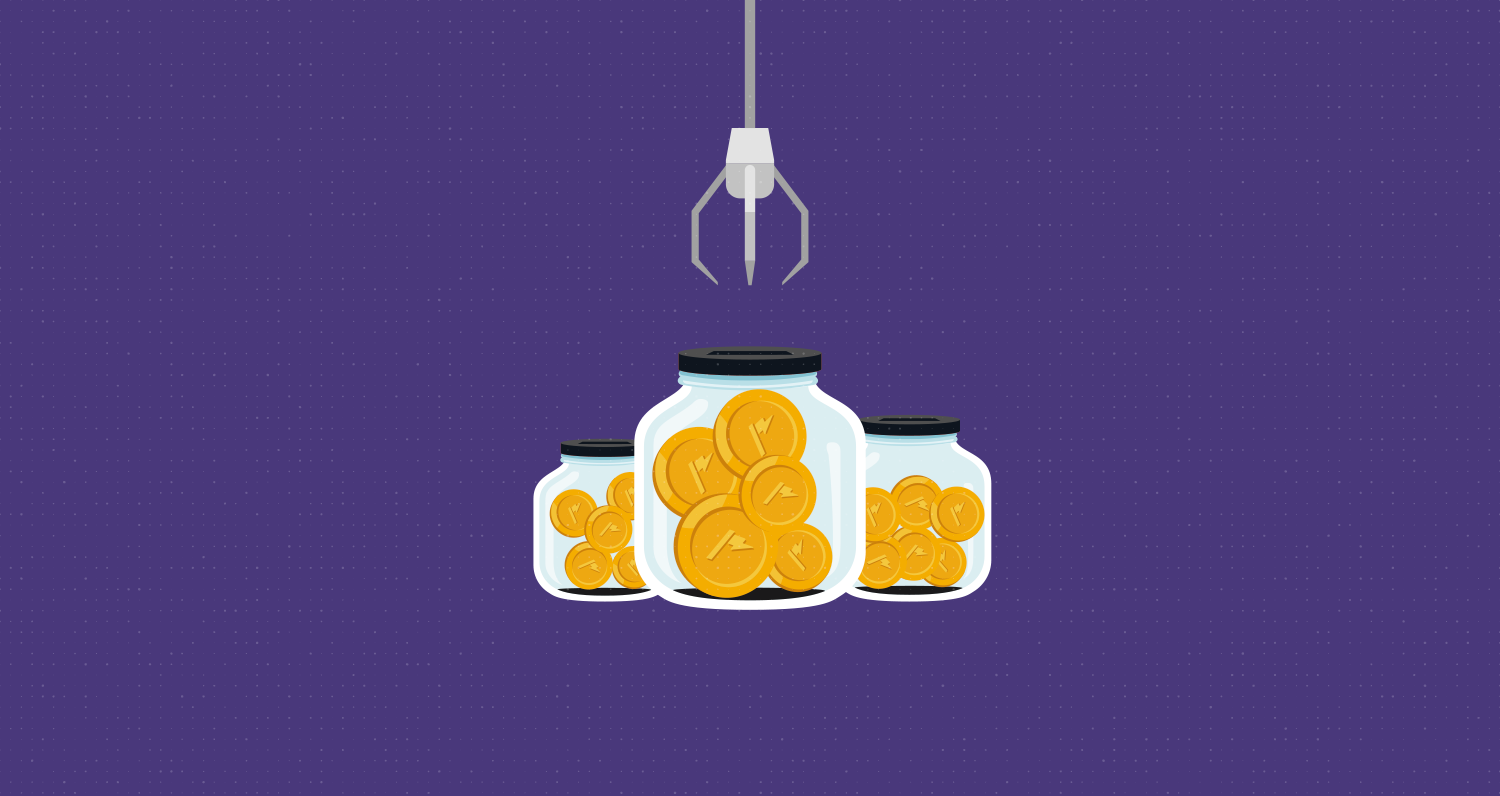Do you find yourself with short-term expenses like installments or unexpected bills? If that’s the case then a savings fund might just be the thing for you! These funds offer a stable and low-risk option for investors seeking to preserve capital while earning modest returns.
Primarily investing in bonds issued by governments, savings funds are considered safer investments compared to stocks. Diversifying your portfolio with savings funds will help you spread out risk and increase the potential for long-term financial growth.
When is the best time to invest in savings funds?
The best time to invest in savings products is after devaluations. With foreign currency flowing back into the country, the allure of using stocks to hedge against local currency devaluations loses its shine. Now’s a prime opportunity to consider adding fixed income (FI) and/or money market (MM) funds to your investment mix.
Why the sudden shift? Well, before devaluations central banks were offering sky-high yields from certificates of deposit (CDs) – we’re talking rates ranging from 18% to 27%! But here’s the catch: those rates didn’t quite keep pace with inflation and fell short compared to other asset classes like equities and commodities. But after a local devaluation, you will make that return without losing any of its value to devaluation!
So, what’s the bottom line? It’s time to diversify your portfolio. FI and MM funds offer lower volatility, increased flexibility, and some pretty enticing rates. Sounds like a smart move, doesn’t it?
Wait.. so isn’t that like a bank certificate?
Yes – but arguably better! You might be wondering, what’s the deal with savings funds versus just stashing cash in the bank with a certificate of deposit? Well, let’s break it down.
Think of it like this: traditional certificates of deposit (CDs) from banks are like locking your money away in a safe, with a “do not disturb” sign on it. Sure, you’ll earn some interest, but you can’t touch it until the agreed-upon time is up , which could be months or even years.
Now, enter savings funds. They’re like having your money in a wallet instead of a locked safe. You can dip into it whenever you need without any penalties. So, no matter if it’s for an emergency or just because you found a great investment opportunity, you’ve got access to your cash without losing any value. It’s that flexibility that makes savings funds a smart choice for folks who want to keep their options open while still growing their money.
Advantages of Savings Funds:
- Stability: Savings funds invest in fixed-income securities, providing predictable returns and stability to investors. This makes them ideal for conservative investors or those nearing retirement.
- Predictable Returns: Unlike stocks, which can be volatile, bonds offer a steady stream of income through interest payments, contributing to the stability of savings funds.
- Liquidity: Savings funds typically offer high liquidity, allowing investors to easily buy and sell shares without significant price fluctuations.
- Professional Management: Savings funds are managed by experienced professionals who actively monitor and adjust the fund’s holdings to optimize returns while minimizing risk.
Drawbacks:
- Lower Returns: While savings funds prioritize stability and capital preservation, they typically offer lower returns compared to riskier investments like stocks.
- Sensitivity to Interest Rates: Savings funds are sensitive to changes in interest rates, which can affect the value of the fund’s holdings. Rising interest rates may lead to a decrease in bond prices, impacting returns, while falling rates can increase bond prices and boost returns.
Who should invest in a savings fund?
Investing in a savings fund can be beneficial in the following scenarios:
- If you want to build an emergency fund: Savings funds provide a safe and reliable option for building an emergency fund, ensuring that investors have access to liquid assets in times of need.
- If you have short-term financial commitments: If you have short-term financial goals, such as saving for a down payment on a house or funding a vacation, savings funds can offer a stable and low-risk investment option.
- If you are risk averse: For investors looking to reduce overall portfolio risk or hedge against market volatility, allocating a portion of their portfolio to savings funds can help diversify their investments and preserve capital.
- If you are planning for retirement: As investors approach retirement, they may prioritize capital preservation and stable income streams. Savings funds can play a crucial role in retirement planning by providing steady returns and protecting against market downturns.
Investing in Savings Funds with Thndr
- B-Secure: With an impressive annualized return of 22.5% as of May, B-Secure stands out as a reliable option for investors seeking steady growth on their savings. Plus, you have the flexibility to liquidate your funds at any time, ensuring easy access to your money when you need it most. B-Secure is brought to you by Beltone, one of Egypt’s largest asset managers, offering a trusted platform for your investment needs.
- MTF: For investors seeking Sharia-compliant options, MTF is the ideal choice. As the only Sharia-compliant savings fund on Thndr, MTF offers an annualized return of 21.9% as of May, providing competitive returns while adhering to Islamic principles. Like B-Secure, MTF offers liquidity, allowing you to liquidate your funds whenever necessary.
- AZS: Managed by Azimut Egypt, one of the biggest asset managers globally with 57B assets under management AZS offers its investors an annualized return of 20%, with daily subscription and redemption giving you easy access to your money whenever you want.











